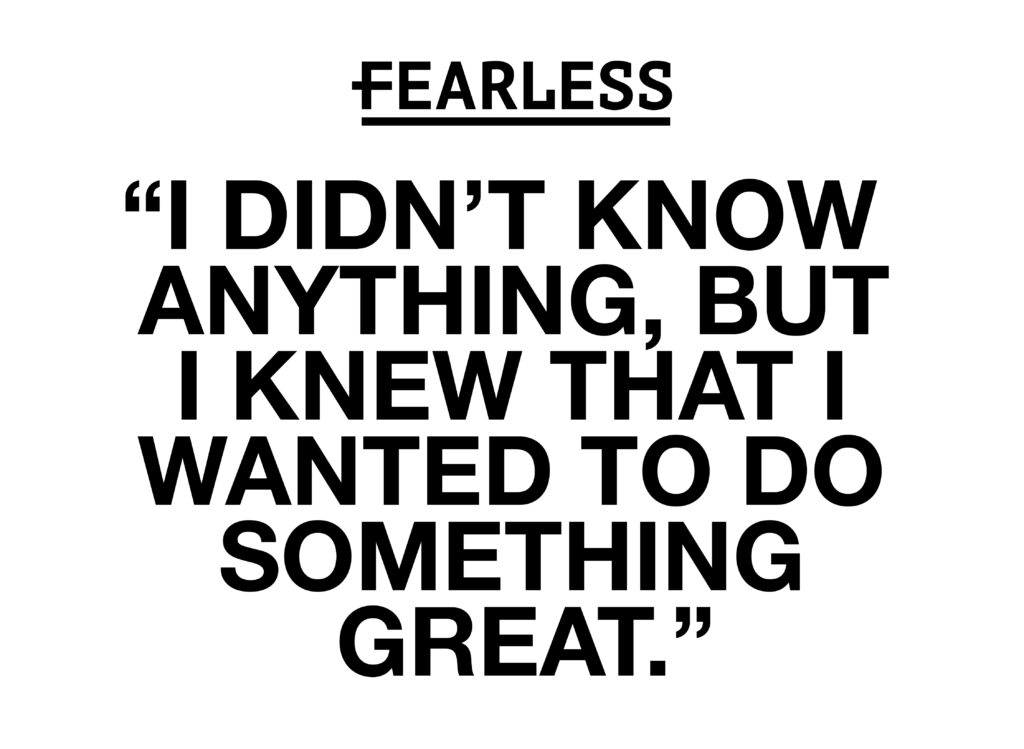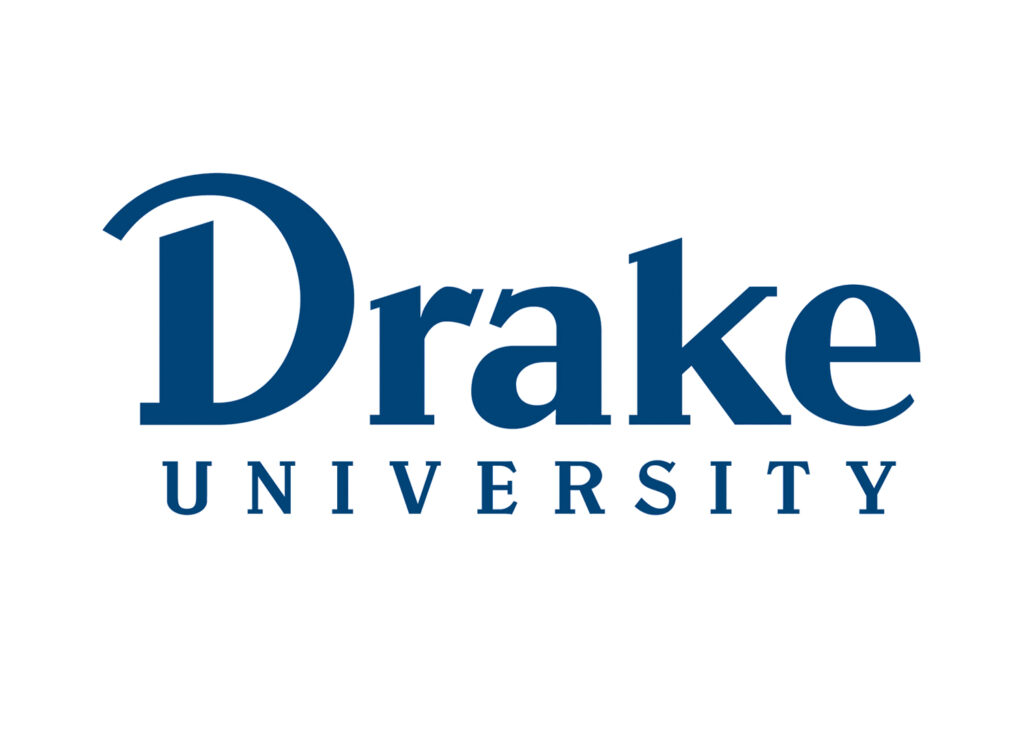Advancing work-based learning in Iowa
New models connect students with employers, real-world projects

In early September, when green leaves were still firmly attached to the trees and students had been back in school for less than two weeks, students in the Ankeny Orbis program were already laptop-deep in tackling some real-world projects.
Now in its second academic year, Orbis engages small teams of students and connects them with employers in the community to carry out meaningful projects. Launched in the 2018-19 school year with students at Ankeny High School and Ankeny Centennial High School, the program now also includes Saydel and North Polk high schools, with nearly 100 students participating.
Projects include producing promotional videos for the Ankeny Economic Development Corp. and building websites for participating small businesses.
Other Ankeny businesses host students for on-site, semester-long business immersion classes. Karl Chevrolet, for instance, offers students the Karl Business Academy, with tracks focusing on either the total business experience or customer service experience.
“The students really step out of the classroom and into the business environment,” said Jill Urich, who was previously chief academic officer for the Ankeny Community School District before becoming director of the Orbis program.
The program was launched with initial funding support from the Iowa STEM Best initiative, which provides grants to further science, technology, engineering and math education in the state.
Orbis is one example of numerous work-based learning collaborations that school districts and business communities are forming throughout the state to better prepare students for success in the workplace.
A statewide survey conducted earlier this year of Iowa employers found that more than 750 organizations currently offer at least one of 18 different types of work-based learning programs at their places of business. At the same time, hundreds more businesses are open to launching work-based learning opportunities at their workplaces.
More than 1,300 employers across the state expressed an interest in starting or expanding work-based learning programs, according to the Iowa Workforce Development survey. Those programs can range from being as comprehensive as Ankeny’s Orbis program to full-scale apprenticeship programs. Or, employers can take their initial steps with worksite field trips or other with less extensive one-day opportunities.
New clearinghouse
To foster additional work-based learning connections, state officials have developed an online nexus as a clearinghouse for projects.
In July, a consortium of state agencies launched the Iowa Clearinghouse for Work-Based Learning. The online portal, established through an executive order by Gov. Kim Reynolds, provides employers a mechanism to post work-based learning opportunities. It’s a joint venture among the Iowa Department of Education, Iowa Workforce Development and Iowa Area Education Agencies (AEA) Learning Online.
The clearinghouse features a project board that employers can access to post potential student projects for students; teachers can search the project board for appropriate projects for their classes. The website also has a business partner directory for teachers to find other kinds of work-based learning opportunities, such as internships, that employers have expressed interest in.
“Work-based learning fits hand in glove with Iowa’s definition of college and career readiness,” said Ryan Wise, director of the Iowa Department of Education, when the database was launched. That career readiness definition “emphasizes not only the content knowledge that students need for success, but also the skills to navigate transitions through and beyond school as learners and leaders,” he said.
The state’s 15 community college districts also serve as ongoing intermediaries for connecting employers and educators with work-based learning programs. In 2013, the Legislature created the Iowa Skilled Worker and Job Creation Fund, which provides $1.45 million annually for the Iowa Work-Based Learning Intermediary Network.
In fiscal year 2018, the program collectively provided work-based experiences that included internships, job shadows and workplace visits to more than 20,600 students statewide through more than 3,400 participating employers, according to the FY 2018 annual report. For Central Iowa, the DMACC Career Discovery Network serves all schools covered by the Heartland AEA District 11.
Statewide, the five most active career cluster areas of student interest were Health sciences; manufacturing; STEM; agriculture, food and natural resources, and business management and administration.
A natural partnership
One of Ankeny’s newest businesses has also been one of the most active partners with the Orbis work-based learning program. Blue Bean, a coworking space and coffee shop launched earlier this year by entrepreneur Carlos Rojas, serves as a learning resource for students in the Orbis program.
Rojas, who has held design and innovation roles with large financial services companies including Bank of America, Wells Fargo and most recently Principal Financial Group, opened Blue Bean in February to provide business support services for small and medium-sized organizations.
Working with Orbis, he hosts sessions with the students on the principles of design thinking and creative problem-solving and how to apply those principles to their projects.
“The interesting thing about Orbis is that [as a participating business] you get to interact with sort of completely open minds that have the ability to take a look at a business challenge,” Rojas said. “[These students] represent a demographic that is one of the most important and most precise judges on brand and value — because they’re used to giving offers a half-second worth of life, and if it’s not worth their attention, they just swipe it. So I think [they] provide really, really powerful insight to any business.”
Based on Rojas’ suggestions and input from students in the first Orbis class, the program’s two teacher-mentors have overhauled the curriculum to immediately immerse the students in their first project. Having three shorter projects with training sprinkled throughout develops a “craving for learning,” said Chad Brooks, one of Orbis’ teacher-mentors.
“It’s really cool,” Brooks said. “It’s been fun to be a part of a very different-than-traditional new program.”
Having business experts such as Rojas speak to the students provides a heightened level of authenticity to the program, Brooks said. For instance, if students are going to be creating a marketing plan for a business, they’re able to tap into some marketing experts who are working with Orbis.
The students “see the value of and the relevance of that learning,” he said. “It just means more coming from a workforce expert, who is using it daily, than from a teacher. And they know way more than we do about certain areas, too. So we kind of build the connections, and then let those connections do the work.”
There are multiple ways for businesses to get involved with Orbis — or other work-based learning programs, Urich said. Orbis has nearly 100 business professionals on its contact list who are participating in a number of different ways and at varying levels, she said.
The program is not limited to STEM-related career fields, and each semester students have a variety of projects to choose from, Urich said. “I would say one of the great things is we’ve really opened it up. We’re not trying to limit it to any one career area by any means — we really want students to be able to make informed decisions.”
Regardless of the project or career area they’re working in, students in the program will be working on three major themes: leadership, problem-solving and communication.
WesleyLife active at multiple levels
A number of Greater Des Moines companies have already been active in offering workplace-based learning at multiple levels through involvement with facilitating organizations.
For instance, Johnston-based WesleyLife, a provider of senior living communities and services, has established partnerships with education programs at the high school, community college and university levels as part of its overall community outreach and talent development program.
“We’re always looking to be involved with [career] advancement for individuals,” said Angela Essink, WesleyLife’s talent acquisition specialist, who has been with the company nearly four years. “That’s been a huge part of my job.”
WesleyLife partnered with Valley High School in West Des Moines to develop a certified nursing assistant preparation program. Now in its third year, the program provides opportunities for Valley students to complete their required clinical assessments for the CNA certification at several WesleyLife community locations.
The senior care services nonprofit also partners with the Waukee School District’s work-based learning program, Waukee APEX. In one project last school year, Waukee APEX students helped WesleyLife’s marketing team to produce some videos. “Nonprofits run pretty lean, so we don’t necessarily have the resources for every initiative,” Essink said. And for the students, “being immersed in the environment can help a student decide where they want to take their career.”
Among WesleyLife’s other training connections have been partnerships with DMACC and Central Campus for applying culinary arts to the senior community environment; participation in Dowling Catholic High School’s career exploration program; and working with Broadlawns’ Teach Tech program for training students from low-income households to become CNAs.
WesleyLife is now establishing one of the first CNA registered apprenticeship programs in the state, Essink said. The company worked with Pella High School and Des Moines Area Community College to establish a CNA apprenticeship for Pella students at WesleyLife’s Hearthstone senior living community in Pella. Now, WesleyLife is developing a similar CNA registered apprenticeship program for CNAs at Valley, which will begin in January.
Essink said the program could “absolutely” be replicated at other high schools. That’s why Pella High School set up its own apprenticeship program, so that it can also partner with other health systems to offer students apprenticeship opportunities, she said.
In Ankeny, Urich anticipates continued growth of the Orbis program as students spread the word about their experiences to their peers.
“I would love for every student who wants the experience to be involved,” she said. “It’s another experience that helps kids be more marketable. They can have a portfolio that shows how they can work and what they have done.”
Now that the statewide clearinghouse is up and running, it offers another way for students to connect with projects, as well as for businesses to get involved by hosting worksite visits or projects.
“Bottom line, we’re trying to bridge the gap between a classroom setting and what happens out in the real world,” Urich said. “So the more students, teachers and businesses we can get involved, the better. It’s not about competing — it’s about how we can all get better.”
Examples of proposed projects from the Work-Based Learning Clearinghouse
Pillar: Develop mobile app to enable reserved parking oversight at downtown worksites.
Mainstream Living: Design instructional lessons that are innovative and create awareness of the direct care provider industry in Iowa.
Farmers Insurance: Analyze insurance needs with natural disasters in mind and present findings to insurance adjusters and community members.
Bankers Trust: Help research ways to make Bankers Trust’s Online Education Center more accessible and visible to high school students.
Principal: Help automate spreadsheet data collection and charts for Principal Real Estate Investors.










